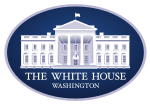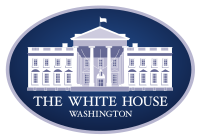You're Hired: Tracking the Trump Administration Transition - February 24, 2017

Trump Administration Vice President Mike Pence Cabinet • White House staff • Transition team |
Domestic affairs: Abortion • Crime and justice • Education • Energy and the environment • Federal courts • Firearms policy • First Amendment • Healthcare • Immigration • Infrastructure • LGBTQ issues • Marijuana • Puerto Rico • Social welfare programs • Veterans • Voting issues Economic affairs and regulations: Agriculture and food policy • Budget • Financial regulation • Jobs • Social Security • Taxes • Trade Foreign affairs and national security: Afghanistan • Arab states of the Persian Gulf • China • Cuba • Iran • Iran nuclear deal • Islamic State and terrorism • Israel and Palestine • Latin America • Military • NATO • North Korea • Puerto Rico • Russia • Syria • Syrian refugees • Technology, privacy, and cybersecurity |
| Polling indexes: Opinion polling during the Trump administration |
This is the February 24, 2017, edition of an email sent from November 2016 to September 2017 that covered Donald Trump's presidential transition, cabinet appointees, and the different policy positions of those individuals who may have had an effect on the new administration. Previous editions of "You're Hired" can be found here.
Trump’s remaining Cabinet nominees
Nine of President Donald Trump’s Cabinet nominees have been confirmed by the Senate. A few setbacks—including the withdrawal of Labor Secretary nominee Andrew Puzder, the narrow confirmation of Secretary of Education Betsy DeVos, delayed paperwork, and partisan resistance—have slowed the confirmation process for some nominees.
Here is where the remaining six nominees stand:
Ryan Zinke, nominee for secretary of the interior
- Rep. Ryan Zinke (R-Mont.) was recommended by the Committee on Energy and Natural Resources on January 31, 2017, with support from four Democratic committee members.
- Since the 115th Congress was sworn in, Zinke has missed 80 of 99 possible votes in the House, placing him in the 99th percentile for most votes missed this session.
- A vote to end debate on Zinke’s nomination is scheduled for Monday, February 27. Katie Waldman, the press secretary for Sen. Steve Daines (R-Mont.), said that Zinke’s confirmation vote would come no later than next Wednesday, March 1.
Sonny Perdue, nominee for secretary of agriculture
- Along with the newly nominated R. Alexander Acosta, former Georgia Gov. Sonny Perdue is the only other Cabinet nominee yet to have his confirmation hearing. Reports indicate that Perdue’s late nomination on January 19, 2017, and a background check backlog at the Federal Bureau of Investigation have slowed his confirmation process. The Committee on Agriculture, Nutrition, and Forestry is also reportedly still waiting for documentation from the White House before it can schedule Perdue’s hearing.
- In the interim, one Democratic senator—Heidi Heitkamp (N.D.)—has already indicated that she will support Perdue’s nomination.
- Learn more about what the secretary of agriculture does and Perdue’s policy positions in our January 20 edition.
Wilbur Ross, nominee for secretary of commerce
- Billionaire investor Wilbur Ross passed through his Commerce, Science, and Transportation Committee review on a voice vote on January 24, 2017.
- Fifteen Democrats in the Senate voted to move forward with his confirmation and a final confirmation vote is expected on Monday, February 27.
- Learn more about Ross’ policy positions in our November 30 and January 19 editions.
R. Alexander Acosta, nominee for secretary of labor
- Trump announced last Thursday that R. Alexander Acosta would be his new nominee for secretary of labor. Acosta’s nomination came the day after Andrew Puzder, Trump's first pick for the position, withdrew from consideration following reports that he did not have sufficient support in the Republican-controlled Senate to be confirmed.
- Acosta has been confirmed by the Senate three times before following appointments to serve as a National Labor Relations Board member, the U.S. attorney for the Southern District of Florida, and the assistant attorney general for the Civil Rights Division of the Department of Justice.
- His confirmation hearing before the Health, Education, Labor, and Pensions Committee has yet to be scheduled.
Ben Carson, nominee for secretary of housing and urban development
- Former presidential candidate Ben Carson received a unanimously favorable report on January 24, 2017, from the Committee on Banking, Housing, and Urban Affairs.
- Senate Majority Leader Mitch McConnell (R-Ky.) has filed for cloture to end debate over Carson’s nomination, but neither that vote nor a final confirmation vote has been scheduled.
- Learn more about what the secretary of housing and urban development does and Carson’s policy positions in our December 5 edition.
Rick Perry, nominee for secretary of energy
- Former Texas Gov. Rick Perry passed through his review in the Committee on Energy and Natural Resources by a vote of 17 to 6.
- Three Democratic members of the committee voted in support of Perry: Catherine Cortez Masto (Nev.), Joe Manchin (W.Va.), and Debbie Stabenow (Mich.). Independent Angus King (Maine) also backed Perry.
- McConnell has filed for cloture to end debate over Perry’s nomination, but neither that vote nor a final confirmation vote has been scheduled.
Read more about the confirmation process for Trump's Cabinet nominees.
Filling other key positions in the Trump administration
While the confirmation of Trump’s Cabinet has been slowed by incomplete paperwork and pushback from Democrats during committee votes and floor debate, the administration has yet to name candidates for hundreds of other high-level Senate-confirmed positions. The Washington Post, in conjunction with the Partnership for Public Service, reported on Monday that 34 of 549 key appointments have been made—including the 15 Cabinet secretaries.
The Post highlighted the vacancies in diplomatic posts: only ambassadors to China, Israel, and the United Kingdom have been selected so far. CNN noted, however, “Trump's pace only lags slightly behind that of former President Barack Obama, at least in terms of selections. By February 17, 2009, Obama had nominated 38 members of his team. He added six more by the end of February.”
Upcoming executive orders
Several executive orders are expected to be issued next week on environmental regulations and immigration. Here is what is expected to be included in those orders based on circulated drafts.
Changes to the Clean Power Plan
The first executive order is likely to direct the Environmental Protection Agency (EPA) to revise the Clean Power Plan, a federal rule finalized in 2015 aimed at reducing carbon dioxide and similar emissions from existing oil, coal, and natural gas-fired power plants.
The rule, issued by the Obama administration, is aimed at reducing emissions in an effort to limit potentially human-caused global warming. Trump promised during the campaign to reverse regulations on coal mining and coal-based electricity generation. In addition, the executive order would direct the U.S. Department of the Interior to end the moratorium on coal leasing on federal land.
- Opponents of the Clean Power Plan argued that the rule would lead to higher energy prices and fewer jobs and would have no effect on rising global temperatures associated with global warming.
- Proponents of the plan argued that the rule is necessary to reduce coal, oil, and natural gas use that proponents argue have contributed to potentially human-caused global warming.
Redefining federal jurisdiction over U.S. waterways
The Washington Post also reported that Trump would issue an executive order directing the EPA and the U.S. Army Corps of Engineers to revise the Waters of the United States rule, a rule finalized in 2015 aimed at clarifying which bodies of water fall under federal jurisdiction, which applies to any private individual, group, or business whose activities could affect these waters.
- Opponents of the rule argued that it is an unnecessary expansion of federal authority and would hinder economic activities and private property use.
- Proponents of the rule argued that the rule is necessary to protect water quality from potential pollutant discharges related to land development.
Read more about federal policy on energy and the environment under the Trump administration.
Revised executive order on refugees and immigration
After Trump’s first executive order impacting refugee admissions and immigrant and nonimmigrant travel from Iraq, Iran, Libya, Somalia, Sudan, Syria, and Yemen was blocked nationwide following court battles in federal district court and the Ninth Circuit Court of Appeals, the Trump administration announced that it would issue a new order to eliminate constitutional concerns.
At a press conference last week, Trump discussed how his team was approaching the revision. “As far as the new order, the new order is going to be very much tailored to what I consider to be a very bad decision, but we can tailor the order to that decision and get just about everything, in some ways more,” he said.
- The next executive order will likely retain its temporary ban on refugee admissions for 90 days, but remove the provision indefinitely banning Syrian refugees.
- The seven countries targeted by the initial executive order will continue to have restrictions on travel. However, they will not apply to permanent residents and visa holders.
- The revised executive order may also eliminate a provision allowing exemptions on travel restrictions for “religious minorities” from the seven countries.
Read more about federal policy on immigration under the Trump administration.
See also
- You're Hired: Tracking the Trump Administration Transition
- Donald Trump presidential transition team
| ||||||||||||||||



